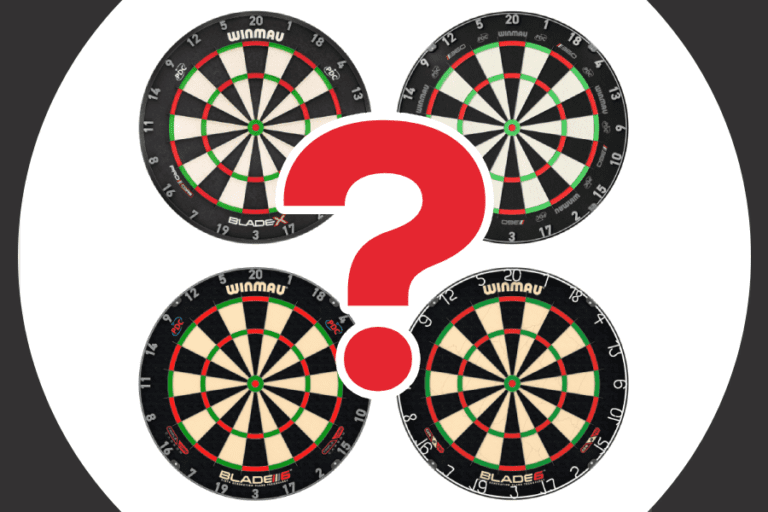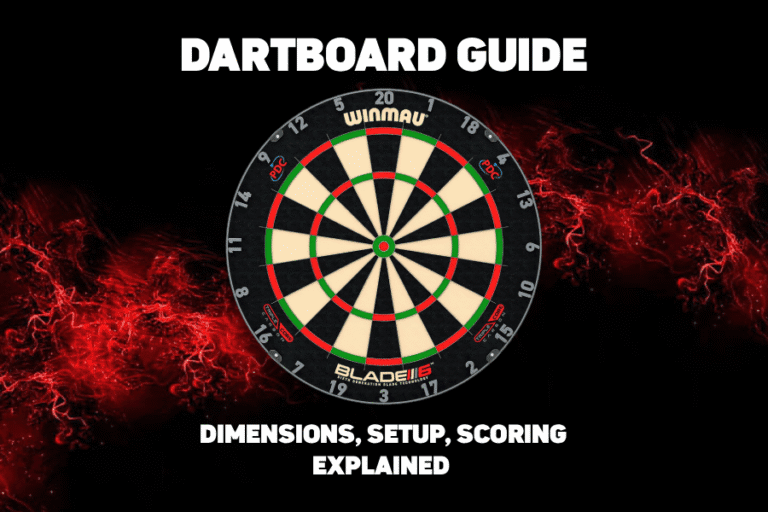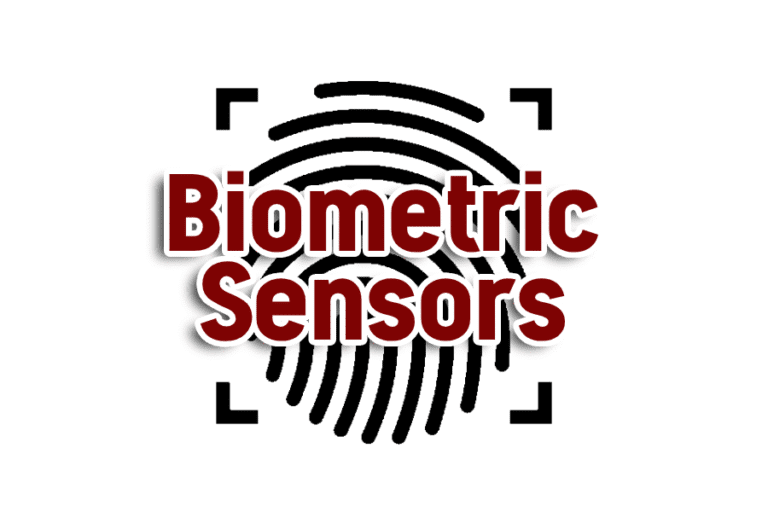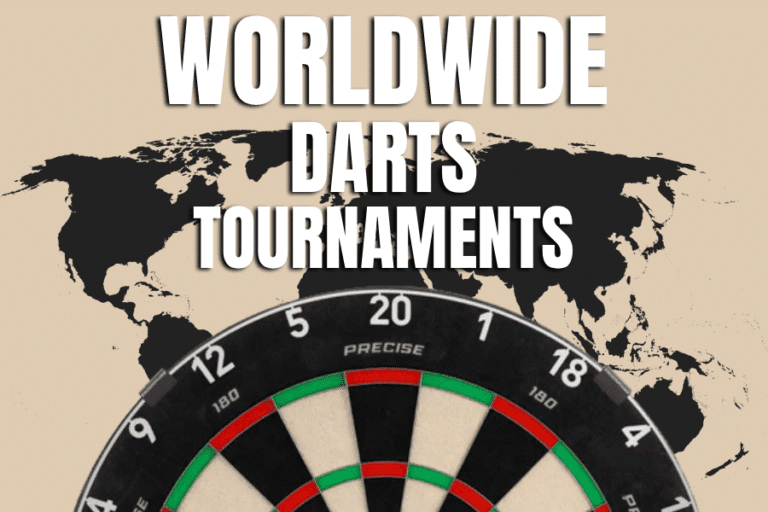
In the world of darts, where precision and focus are paramount, etiquette plays a critical role in maintaining the sport’s integrity. Whether you’re a player aiming for that perfect score or a referee ensuring fair play, understanding and adhering to the unspoken rules of behavior is essential.
Proper darts etiquette isn’t just about following rules—it’s about respecting your opponents, the game, and the shared space where the competition takes place.
Good etiquette in darts creates a positive atmosphere, allowing both players and officials to focus on their roles without unnecessary distractions. It ensures that the competition remains friendly, even in the heat of a match.
The Foundation of Player Etiquette
As a dart player, understanding and adhering to proper etiquette is just as crucial as mastering your throw. Good etiquette sets the tone for the match, ensuring that all participants feel respected and focused.
Whether you’re a seasoned player or a newcomer, the way you conduct yourself on the oche can significantly impact the game’s overall atmosphere.
By respecting your opponent, avoiding distractions, and handling both wins and losses gracefully, you contribute to a positive playing environment.
Respecting Your Opponent
Respecting your opponent is the cornerstone of sportsmanship in darts. Before the match even begins, it’s essential to acknowledge your opponent with a handshake or a simple nod. This small gesture sets a respectful tone for the game.
Throughout the match, it’s crucial to avoid any behavior that could be perceived as disrespectful. This includes refraining from trash talk, which can create unnecessary tension and detract from the enjoyment of the game.
During the match, acknowledge your opponent’s good shots. A simple “good dart” or a nod of approval can go a long way in maintaining a friendly competition. However, be careful not to overdo it—constant praise can come across as condescending. The key is to be sincere and balanced in your recognition. Respect also means allowing your opponent to focus when it’s their turn.
Avoid making unnecessary noise or movements that could distract them. Remember, the game is as much mental as it is physical, and concentration is vital for both players.

Maintaining Focus and Avoiding Distractions
Maintaining focus is vital in darts, and as a player, you have a responsibility to avoid causing distractions. The oche is a place for concentration, and any disruption can throw off a player’s rhythm. When it’s your turn to throw, you expect silence and stillness from those around you.
The same courtesy should be extended to others when it’s their turn. It’s crucial to remain still and quiet, especially during an opponent’s throw. Even small gestures, like shifting your weight or moving your darts around, can catch their eye and break their focus.
In today’s digital age, mobile devices are everywhere. However, during a darts match, it’s best to keep your phone on silent or, better yet, out of sight. A ringing phone or a buzzing notification can be incredibly distracting.
If you must use your phone, do so between matches or when you’re away from the playing area. The same goes for conversations—keep them low and brief if they can’t be postponed.
Remember, the focus isn’t just on you but on the entire game, and maintaining an environment conducive to concentration is part of good etiquette.
Handling Wins and Losses with Grace
How you handle victories and defeats says a lot about your character as a dart player. Winning is always a great feeling, but it’s important to celebrate respectfully. After securing a win, a simple smile and a handshake are enough. Avoid excessive celebrations, as they can come across as gloating.
Remember, your opponent might be disappointed, and rubbing in your victory can create unnecessary animosity. A gracious winner acknowledges their opponent’s effort and remains humble in their success.

On the flip side, losing can be tough, but it’s crucial to accept defeat with grace. Instead of making excuses or blaming external factors, use the experience as a learning opportunity. Congratulate your opponent sincerely, and if possible, reflect on the match to identify areas for improvement.
A true sportsman understands that losses are part of the game and that every defeat is a steppingstone toward becoming a better player. By handling both wins and losses with dignity, you not only earn the respect of your peers but also contribute to a positive and supportive darts community.
Understanding the Exclusion Zone in Professional Darts
The exclusion zone in professional darts is a critical area that ensures fair play and focus. This zone, often referred to as the “oche area,” is the space behind the oche, the line from which players throw. No one but the player throwing should enter this zone during a match.
Importance of the Exclusion Zone
The exclusion zone serves multiple purposes. It keeps other players and officials from distracting the thrower. This ensures that the player has a clear, uninterrupted path to the dartboard. Distractions can affect concentration, which is why the exclusion zone must be respected at all times.
In professional darts, the exclusion zone extends back several feet from the oche. Referees, scorekeepers, and other players must stay out of this area until the throw is complete. Even minor intrusions can lead to disputes or penalties.
For players, respecting the exclusion zone is a sign of good sportsmanship. It shows respect for your opponent’s concentration. When it’s not your turn, you should step back, remaining outside this zone. This helps maintain the integrity of the game.

Enforcing the Exclusion Zone
Referees are responsible for enforcing the exclusion zone. They must ensure that all players and officials respect this boundary. If a player or official enters the zone during a throw, the referee may issue a warning. Repeated violations could result in penalties or disqualification. This enforcement is essential to maintaining fairness in the match.
The exclusion zone also applies to the audience. Spectators must stay clear of this area, as any movement or noise can be distracting. In professional tournaments, security personnel may be stationed near the oche to enforce this rule.
The exclusion zone is more than just a physical space—it’s a key part of professional darts etiquette. By respecting this zone, everyone involved in the match helps ensure that the game is played with the utmost fairness and professionalism.
The Role of the Referee in Darts Etiquette
A referee in darts plays a crucial role in ensuring fair play and upholding the game’s integrity. While players focus on their throws, the referee is responsible for maintaining order and ensuring the rules are followed.
This role requires a deep understanding of the game, an impartial mindset, and excellent communication skills. Referees must manage conflicts, make quick decisions, and communicate those decisions clearly to the players.
Proper etiquette for referees involves impartiality, effective communication, and the ability to handle disputes professionally.
Impartiality and Fairness
Impartiality is the bedrock of a referee’s role in any competitive sport, including darts. A referee must be unbiased, treating all players equally regardless of personal relationships or outside influences.
The credibility of the match depends on the referee’s ability to apply the rules consistently. Players and spectators expect a fair game, and any sign of favoritism can undermine the referee’s authority and the match’s outcome.
Being impartial means making decisions based solely on the rules and the situation at hand, without letting emotions or external pressures interfere.
Referees should also be aware of the appearance of bias. Even if a referee is entirely fair, perceived favoritism can lead to disputes. To avoid this, it’s important to maintain a professional demeanor at all times, avoiding unnecessary interactions with players or spectators that could be misconstrued.
By remaining impartial and fair, referees help ensure that the match is decided by skill rather than outside influences, preserving the integrity of the game.

Clear and Concise Communication
Effective communication is essential for a referee to maintain order and clarity during a darts match. A good referee communicates decisions quickly and clearly, leaving no room for confusion.
Whether announcing scores, addressing rule clarifications, or managing disputes, clear communication helps keep the match running smoothly. It’s important for referees to use a calm and authoritative tone, ensuring that their instructions are understood without causing unnecessary tension.
In cases where disputes arise, the referee’s communication skills are put to the test. It’s crucial to listen to both sides of the argument before making a decision and to explain that decision clearly. Players may not always agree with the referee’s ruling, but they are more likely to accept it if it is explained logically and without bias.
Additionally, referees should be approachable yet firm, creating an environment where players feel comfortable raising concerns but understand that the final decision rests with the referee. By mastering the art of clear and concise communication, referees contribute to a fair and enjoyable game for everyone involved.
Managing Conflicts and Disputes
Conflicts and disputes are inevitable in competitive darts, and it’s the referee’s job to manage them calmly and effectively. Disputes can arise from various situations, such as a disputed score, an interruption during a throw, or disagreements over a rule interpretation.
When conflicts occur, the referee must remain calm and composed, guiding the players toward a resolution. The key is to address the issue promptly, without allowing emotions to escalate. A good referee listens to all sides, considers the evidence, and makes a decision based on the rules.
In handling disputes, it’s important for the referee to maintain control of the match. This may involve reminding players of the rules, enforcing penalties for unsportsmanlike conduct, or, in extreme cases, calling for a pause in the match to allow tempers to cool.
The referee’s authority should be respected, but it must be exercised fairly and without intimidation. By managing conflicts effectively, referees help maintain the flow of the game and ensure that disputes are resolved in a way that upholds the sport’s integrity.

Common Etiquette Scenarios and How to Handle Them
In darts, various scenarios can arise where proper etiquette becomes especially important. These situations often test a player’s or referee’s ability to remain calm, respectful, and focused.
Knowing how to handle these scenarios can prevent small issues from escalating into major disputes and ensure that the game continues smoothly. This section will explore common etiquette scenarios in darts and provide guidance on how to navigate them with poise and professionalism.
Handling a Disputed Score
Disputed scores can quickly escalate into heated arguments if not handled with proper etiquette. Whether it’s a disagreement over the exact score or a question about the legitimacy of a dart’s placement, these situations require careful handling.
As a player, if you find yourself in a dispute over the score, it’s important to remain calm and address the issue respectfully. Start by asking the referee for clarification, and if necessary, refer to any available evidence, such as the position of the darts on the board.
For referees, handling a disputed score involves carefully examining the situation and making an unbiased decision. If the dart’s position is unclear, consider asking both players for their perspective before deciding.
The goal is to resolve the dispute fairly and swiftly, minimizing disruption to the game. Once a decision is made, it’s crucial to communicate it clearly and assertively, ensuring that both players understand and accept the ruling.
By handling disputed scores with professionalism and respect, both players and referees can maintain the integrity of the match.
Interruptions During a Throw
An interruption during a throw can be frustrating, but it’s important to handle the situation with patience and respect. Interruptions can occur for various reasons, such as a spectator causing a distraction, a player accidentally stepping into the oche, or a technical issue with the dartboard.
As a player, if you’re interrupted during your throw, it’s essential to pause and inform the referee calmly. Avoid making a scene or showing visible frustration, as this can escalate the situation.
For referees, managing interruptions involves assessing the situation quickly and deciding how to proceed. In some cases, it may be appropriate to allow the player to retake their throw. In others, the interruption may be deemed insignificant, and the game should continue as usual.
The key is to be fair and consistent in applying the rules. It’s also important to address the cause of the interruption to prevent it from recurring. By handling interruptions with care, referees help ensure that the game remains fair and enjoyable for all players.
Dealing with a Noisy Audience
A noisy audience can be a significant distraction during a darts match, affecting players’ focus and concentration. However, it’s important to remember that audience members may not always be aware of the impact of their noise.
As a player, if you find the audience noise distracting, it’s best to address the issue politely through the referee. Avoid confronting the audience directly, as this can lead to unnecessary conflict.

Referees play a crucial role in managing audience behavior. If the noise level becomes disruptive, the referee should remind the audience to remain quiet during throws.
This can be done with a simple announcement or by asking specific individuals to lower their voices. In extreme cases, the referee may need to pause the match until the audience settles down.
The goal is to create a respectful environment where players can focus on their game without undue distractions.
By managing a noisy audience effectively, referees help maintain the integrity of the match and ensure that all players have a fair chance to perform at their best.
Practical Tips for Maintaining Darts Etiquette
Maintaining proper etiquette in darts goes beyond just knowing the rules—it’s about practicing them consistently. Whether you’re a player or a referee, there are several practical tips you can follow to ensure that you always conduct yourself with respect and professionalism.
These tips will help you navigate common challenges in darts and contribute to a positive and enjoyable playing environment for everyone involved.
Stay Calm Under Pressure
One of the most important aspects of darts etiquette is staying calm under pressure. Darts is a game that requires intense concentration and precision, and it’s easy to become frustrated when things don’t go your way.
However, losing your cool can lead to poor decisions, unsportsmanlike behavior, and unnecessary conflicts. As a player, practice techniques such as deep breathing or visualization to help you stay composed during high-pressure situations.
Remember, maintaining a calm demeanor not only helps your performance but also sets a positive example for others.
For referees, staying calm is equally important, especially when managing disputes or handling difficult situations. A calm referee is better able to make clear, rational decisions and communicate effectively with players.
If you find yourself becoming stressed or overwhelmed, take a moment to pause and refocus before proceeding.
By staying calm under pressure, you help maintain the flow of the game and ensure that everyone can enjoy the match in a positive and respectful environment.
Consistent Practice of Etiquette
Etiquette in darts isn’t just something to think about during matches—it’s a mindset that should be practiced consistently. Make it a habit to follow the principles of good sportsmanship in every aspect of your darts experience, from casual games with friends to competitive matches.
This includes respecting your opponent, maintaining focus, and handling wins and losses gracefully.
The more you practice these behaviors, the more natural they will become, helping you to always conduct yourself with integrity, no matter the situation.
For referees, consistency in applying the rules and maintaining impartiality is key to upholding the sport’s integrity. Take the time to review the rules regularly and reflect on your experiences to identify areas where you can improve.
By consistently practicing good etiquette, both players and referees contribute to a positive and respectful darts community where everyone can enjoy the game to the fullest.

The Impact of Good Etiquette on the Darts Community
Good etiquette in darts has a ripple effect that extends beyond the individual match. When players and referees consistently demonstrate respect, fairness, and professionalism, it creates a positive atmosphere that benefits the entire darts community.
This positive environment encourages more people to participate in the sport, fosters better relationships between players, and elevates the overall standard of play.
In this section, we’ll explore how good etiquette impacts the darts community and why it’s essential for the sport’s growth and development.
Encouraging New Players
One of the most significant impacts of good etiquette is its ability to encourage new players to join the sport.
For beginners, stepping into the world of darts can be intimidating, especially if they’re not familiar with the rules or culture.
However, when experienced players and referees demonstrate patience, respect, and support, it creates a welcoming environment where newcomers feel comfortable and valued.
By practicing good etiquette, you help to demystify the sport and make it more accessible to people of all skill levels.
As a player, consider offering advice or encouragement to new players, helping them to improve their skills and build their confidence. As a referee, be patient with beginners and take the time to explain the rules clearly and kindly.
By fostering a positive and supportive environment, you contribute to the growth of the darts community and help ensure that the sport continues to thrive.
Building Strong Relationships
Good etiquette also plays a crucial role in building strong relationships within the darts community. Whether you’re playing in a local league, participating in a tournament, or just enjoying a casual game with friends, the way you conduct yourself can significantly impact your relationships with other players.
Respectful behavior, clear communication, and fair play help to build trust and camaraderie among players, leading to stronger bonds and a more enjoyable experience for everyone involved.
For referees, good etiquette is essential in establishing credibility and earning the respect of players. A referee who is fair, impartial, and professional is more likely to be trusted and respected by players, leading to smoother matches and fewer disputes.
By consistently practicing good etiquette, both players and referees contribute to a positive and supportive darts community where strong relationships can flourish.

Elevating the Standard of Play
Finally, good etiquette helps to elevate the standard of play in darts. When players and referees adhere to the principles of sportsmanship, it creates a competitive environment that is both challenging and enjoyable.
Players are more likely to push themselves to improve their skills and strive for excellence when they know that they are competing in a fair and respectful environment.
This, in turn, raises the overall level of competition, making the sport more exciting and rewarding for everyone involved.
Referees also play a key role in maintaining high standards by consistently applying the rules and ensuring fair play. When referees are diligent and professional, it sets a tone of seriousness and respect that encourages players to give their best effort.
By upholding good etiquette, both players and referees contribute to the continuous improvement of the sport, helping darts to grow and evolve into a more sophisticated and respected competitive activity.
Wrapping Up: The Essential Role of Etiquette in Darts
As we’ve explored throughout this guide, etiquette in darts is far more than a set of unwritten rules—it’s the foundation upon which the entire sport is built.
For players, practicing good etiquette enhances the quality of the game, fosters positive relationships, and helps to create a welcoming environment for newcomers.
For referees, proper etiquette ensures fair play, maintains order, and upholds the sport’s integrity.
Together, these practices contribute to a darts community that is respectful, supportive, and continuously improving.
By consistently practicing good etiquette, you play a vital role in preserving the spirit of darts, ensuring that it remains a sport where skill, respect, and sportsmanship are valued above all else.
Whether you’re stepping up to the oche or standing as a referee, remember that your behavior sets the tone for the game and impacts everyone involved.
By conducting yourself with integrity and respect, you contribute to a positive and enjoyable experience for all players and help to ensure the continued growth and success of the sport.
Frequently Asked Questions (FAQ)
1. What should I do if my opponent is being disrespectful during a match?
If your opponent is being disrespectful, it’s important to remain calm and not engage in similar behavior. Try to focus on your game and avoid escalating the situation. If the behavior persists, consider bringing it to the attention of the referee, who can address the issue appropriately.
2. How can I practice good etiquette as a beginner in darts?
As a beginner, focus on respecting your opponents, following the rules, and maintaining a positive attitude, regardless of the outcome. Listen to advice from more experienced players and practice good sportsmanship by acknowledging their efforts and accepting your results with grace.
3. What is the referee’s role in managing disputes during a match?
The referee’s role in managing disputes is to listen to all parties involved, make a decision based on the rules, and communicate that decision clearly. The referee should remain impartial and calm, ensuring that the match continues smoothly and fairly.
4. How can I handle a noisy audience during my throw?
If the audience noise is distracting, inform the referee calmly. The referee can then address the issue by asking the audience to be quiet during throws. Avoid confronting the audience directly, as this can lead to further disruptions.
5. What are some ways to stay calm under pressure during a darts match?
To stay calm under pressure, practice deep breathing, visualize successful throws, and focus on the process rather than the outcome. Remember that staying composed helps you perform better and sets a positive example for others.







